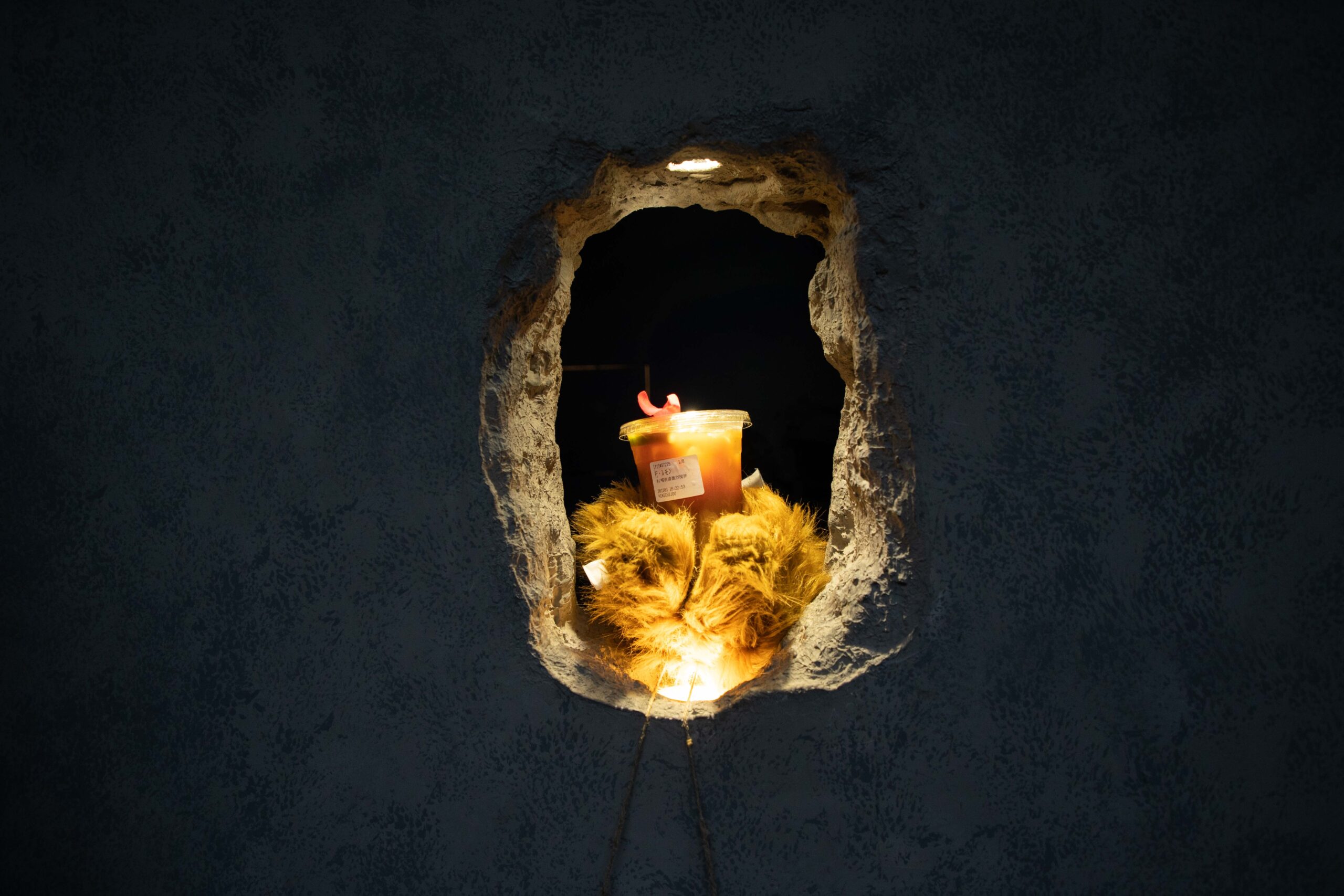On Yongkang Road in Shanghai, a new cafe shop has become popular on Chinese social networks.
There is no obvious door to the coffee shop, only a hole in the cement wall. After scanning the QR code, customers can order via WeChat, and after waiting for a few minutes, a “bear claw” will push the coffee out of the hole. If you try to interact with a bear’s claw, it will also make movements, such as making a gesture of victory, shaking hands with you, or taping children’s heads.


Shop assistants do not have any conversation with customers, not because they are real bears, but because they are hearing and speech impaired persons in bear claw gloves.
The coffee shop itself is a public welfare project, and the manager himself is a deaf barista who won a prize in the barista contest in China. The two clerks who wore fake bear claws to deliver coffee also had difficulty in hearing and speech. They had previously received skills training from the Shanghai disabled Persons’ Federation. But the coffee shop is not expensive, with an average price of 20 yuan ($3.06) per cup of coffee.
The name of the coffee shop is HINICHIJOU, which is the Roman sound of “non-everyday” in Japanese. The staff said in an interview that the name of the store is to correct the public’s prejudice that “deaf-mute people are abnormal groups” and that deaf-mute people are “not a group that everyone can meet every day.” They think that the deaf-mute is just “not a group that everyone can meet every day”.
The original purpose of the store manager was only to solve the employment problem of some disabled people, and the store did not initially include “hiring disabled people” as part of its store introduction. Bear claws are used to deliver coffee because it can significantly reduce the frequency of vocal communication. Because few people try to talk to people who wear mascot costumes.
But as more and more people became curious about the silent bear making coffee in the cave, the whole story began to spread on the Internet in China.
The store first opened for trial on November 15, and it officially opened on December 3, the International Day for the disabled, due to online discussions. At the same time, the store promises to provide a free cup of coffee to consumers with disabled cards every day. This has further prompted disabled consumers in Shanghai to buy coffee and share photos online.
As the store has become a trend on social networks, a large number of tourists come here to buy coffee and take photos, and they are planning to recruit more disabled people to become shop assistants. They also disinfect bear claw gloves several times a day to prevent the spread of the potential COVID-19 virus.

评论